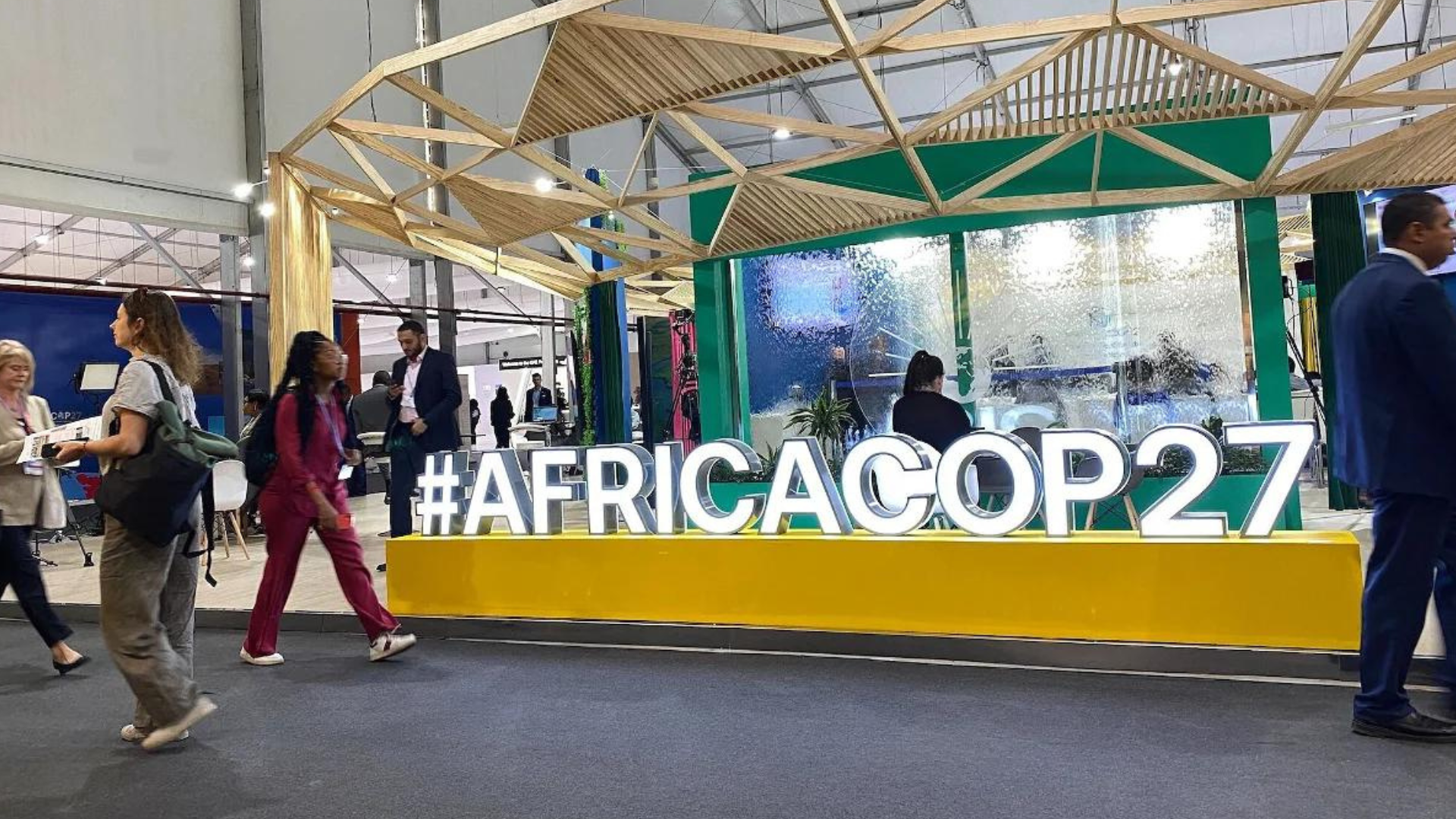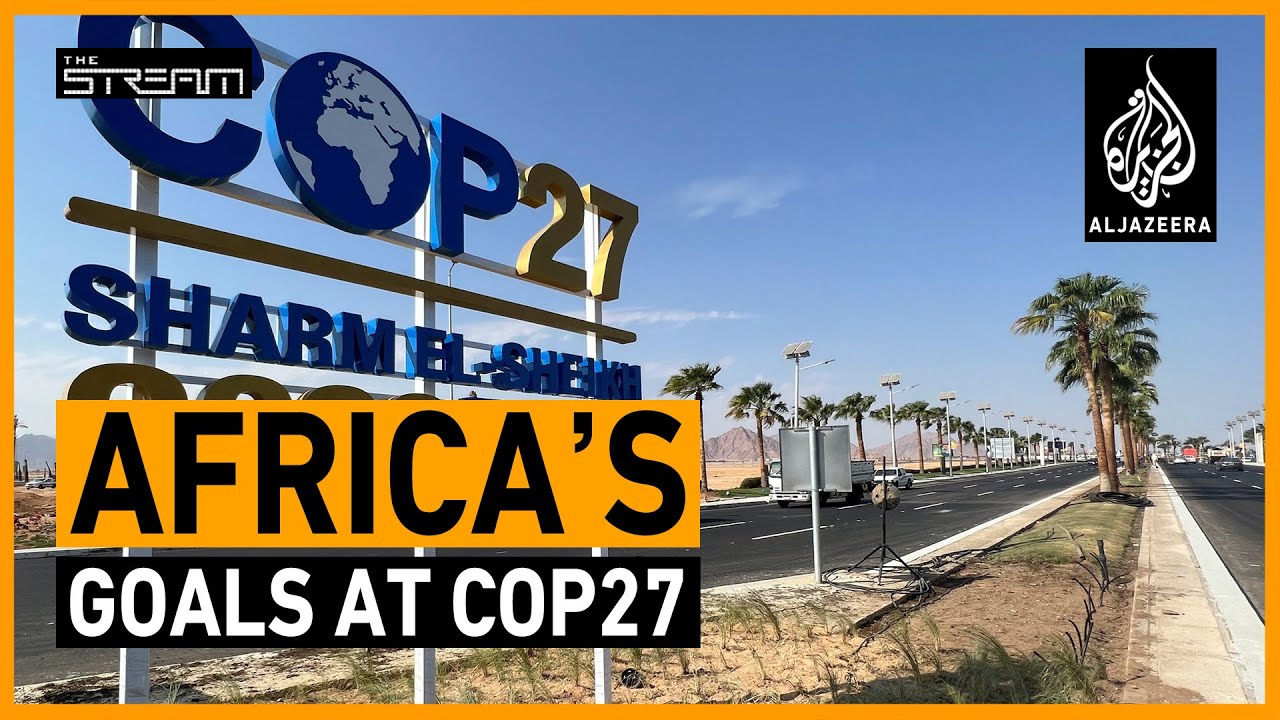Activists Hoped That Egypt's COP27 Would Focus On Africa
According to one campaigner, it's yet another example of western countries' hypocrisy toward the continent, which has barely contributed to the climate crisis but is experiencing some of its most devastating consequences. Activists hoped that Egypt's COP27 would focus on Africa. Advocates say that promise has not been delivered.
Author:Dexter CookeReviewer:Hajra ShannonNov 18, 20221.2K Shares399.9K Views

A campaigner stated that it's yet another example of western countries' hypocrisy toward the continent, which has barely contributed to the climate crisis but is experiencing some of its most devastating consequences.
Activists hoped that Egypt's COP27 would focus on Africa. Advocates say that promise has not been delivered. The crowd was loving what Bhekumuzi Bhebhe had to say, cheering loudly as he yelled “don’t gas Africa!” into the megaphone.
So, next year's COP will be held in the United Arab Emirates, the country with the most delegates here. The 27th United Nations Conference of the Parties (COP27) climate summit has brought together world leaders, scientists, and policymakers in Sharm El-Sheikh, Egypt.
They Are Disappointed - Activists Hoped That Egypt's COP27 Would Focus On Africa

Will COP27 address Africa's climate challenges? | The Stream
On Tuesday, November 15, under the baking Egyptian sun at the COP27 UN climate summit in Sharm el-Sheikh, Bhebhe, a South African-based climate campaigner, was protesting what he called an attempt by rich countries to bribe Africa into investing in climate-warming fossil fuels.
In his opinion, it is yet another example of the hypocrisy displayed by Western countries toward the continent, which has made little contribution to the climate crisis but is bearing the brunt of its consequences.
The Egyptian government, which is hosting and presiding over the UN-sponsored climate talks, had promised that this year's summit would finally be the "African COP," with the needs of the continent at the forefront.
Broken Promise
But, according to many African representatives, that promise has largely gone unfulfilled. Mohamed Adow, the director and founder of Power Shift Africa, a non-governmental organization focused on accelerating renewable energy in the region, stated at a Sunday event that the conference is "African in name only."
Any hopes that the summit would truly focus on Africa were dashed early on when conference participants refused to include a discussion about the continent's "special needs and circumstances" on the agenda.
Philip Osano, director of the Africa Center at the Stockholm Environment Institute, said that recognizing the special circumstances is one of the top three priorities for many African governments, along with climate finance and the transition to clean energy.
“„Africa contributes less than 4.8% of emissions, but the impacts have now become very serious, that’s why this is a priority item. The bad news is, it’s off the agenda. But it’s very complicated, because in other parts of the world, especially small island states, developing countries, everybody is kind of having a special circumstance when it comes to climate.- Philip Osano, Director of the Africa Center
Paying For Loss And Damage
Some of the leaders of the most vulnerable countries to the climate crisis, many of which are in Africa, have traveled to Sharm el Sheikh in the hope that developed countries will finally agree to pay for the loss and damage caused by climate change.
The idea is simple: countries that became wealthy by exploiting the fossil fuels that caused the crisis should assist those who are most affected by its devastation.
Leaders of climate-vulnerable countries said this was their top priority going into the summit, and there was hope that a new funding facility could be established this year. However, negotiations have been difficult.
Some of the world's wealthiest countries have banded together to oppose the creation of a new fund. The United States, the European Union, and the United Kingdom have all tried to push the issue back, claiming that they want to establish a "process" that will result in an "outcome" by 2024.
But that is not good enough for countries whose coasts are disappearing and whose people are drowning or starving as a result of devastating floods or droughts.
Energy Front End Center
One of the summit's key issues has emerged as the fight over Africa's future energy infrastructure. According to the International Energy Agency, approximately 600 million Africans do not have access to electricity, and nearly a billion do not have access to clean cooking facilities, instead relying on solid biomass, kerosene, as their primary cooking fuel.
Experts and activists warn that many African countries are becoming entangled in polluting fossil fuel investments that will likely prove uneconomical in a few years.
It is not a hypothetical situation. Many of the world's wealthiest countries are pushing for increased fossil fuel investments in several African countries as they try to wean themselves off Russian gas due to the Ukraine conflict.
Chancellor Olaf Scholz of Germany flew to Dakar earlier this year to discuss the development of a new offshore natural gas field with Senegalese President Macky Sall, the African Union's chair.
In addition, earlier this month, the Italian energy conglomerate ENI began exporting natural gas from a new deep-sea gas field in Mozambique.

Dexter Cooke
Author
Dexter Cooke is an economist, marketing strategist, and orthopedic surgeon with over 20 years of experience crafting compelling narratives that resonate worldwide.
He holds a Journalism degree from Columbia University, an Economics background from Yale University, and a medical degree with a postdoctoral fellowship in orthopedic medicine from the Medical University of South Carolina.
Dexter’s insights into media, economics, and marketing shine through his prolific contributions to respected publications and advisory roles for influential organizations.
As an orthopedic surgeon specializing in minimally invasive knee replacement surgery and laparoscopic procedures, Dexter prioritizes patient care above all.
Outside his professional pursuits, Dexter enjoys collecting vintage watches, studying ancient civilizations, learning about astronomy, and participating in charity runs.

Hajra Shannon
Reviewer
Hajra Shannona is a highly experienced journalist with over 9 years of expertise in news writing, investigative reporting, and political analysis.
She holds a Bachelor's degree in Journalism from Columbia University and has contributed to reputable publications focusing on global affairs, human rights, and environmental sustainability.
Hajra's authoritative voice and trustworthy reporting reflect her commitment to delivering insightful news content.
Beyond journalism, she enjoys exploring new cultures through travel and pursuing outdoor photography
Latest Articles
Popular Articles